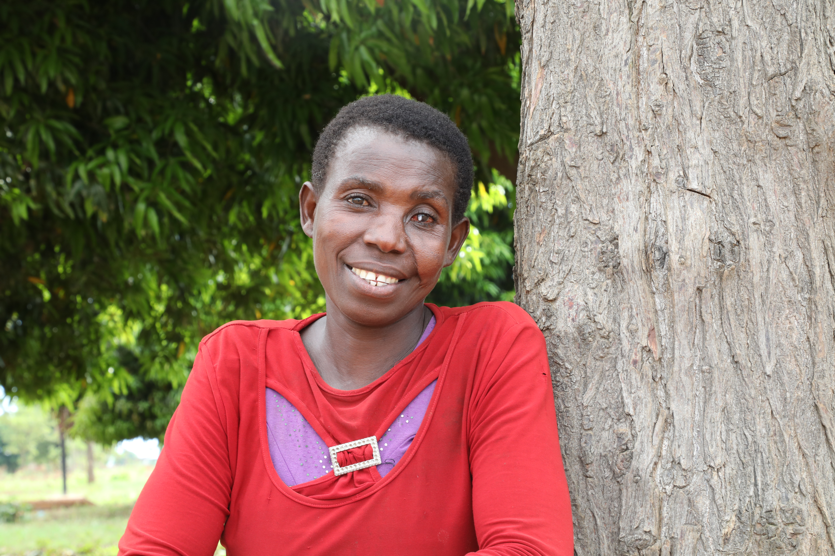
Shinyanga-Kahama, Tanzania – For nearly a decade, Maria Richard’s routine to receive lifesaving Antiretroviral Treatment (ART) for HIV was the same – walk six hours to reach a health center in Shinyanga region. There, she would get the medicine for herself and her 12-year-old daughter who also was diagnosed with HIV. The journey left her so exhausted that she stopped going and her health deteriorated.
But today, the medicine Maria needs to live positively with HIV is delivered to her rural community just a short distance from her home and she is on a path to good health. Maria and 8,000 other Tanzanians diagnosed with HIV are benefiting from a new approach to delivering care closer to where people live to ensure they maintain their ART.
The Sauti project, led by Jhpiego in partnership with with EngenderHealth, Pact and the National Institute for Medical Research-Mwanza, began this new mobile outreach initiative for clients who have been taking ART for at least six months, report good adherence and show minimal levels of the virus in their blood or suppressed viral load. The initiative is part of the government of Tanzania’s commitment to provide quality health services to its citizens, especially those who live in remote or rural areas, reduce the transmission of HIV and, ultimately, save lives. The President’s Emergency Plan for AIDS Relief funds the project through the U.S. Agency for International Development.
Community-based approach makes the difference for clients
Maria learned about the mobile outreach effort in March of last year, during a routine visit to the health center to get her treatment. The mobile approach, operating in eight regions, was conceived to promote retention in care and treatment, reduce the time it took to receive ART at a health facility and support clients from hard-to-reach areas.
This is how the mobile approach works: a health care worker uses a data base of people receiving ART to identify those clients whose medication will be delivered via public transport or motorcycle to groups formed by HIV-positive clients. Those clients take their medication during the group outreach activities. Group members usually meet monthly and, besides getting ART, participate in health education sessions on the use of medications, nutrition and psychosocial support.
In the past, Maria had found it difficult to stay current with her HIV medication. The hours-long walk to the Ukune health center left her so exhausted and her legs swollen that she stopped treatment for 18 months. That was in 2015. As her health deteriorated, she mustered up the strength to return to care and treatment in 2017 and resume her walks to the health center.
Since she enrolled in the mobile medication effort last spring, the community group sessions have helped Maria stay current with her medication and provide a lifeline of support.
“Now I am not walking long distance to access the medication and I don’t expect to miss it,” said Maria, who was diagnosed with HIV more than a decade ago. “Our regular monthly meeting has helped us to support each other for continuing with (our) medications.”
With support like that and easy access to ART, Maria and other HIV-positive Tanzanians can manage their health successfully.




